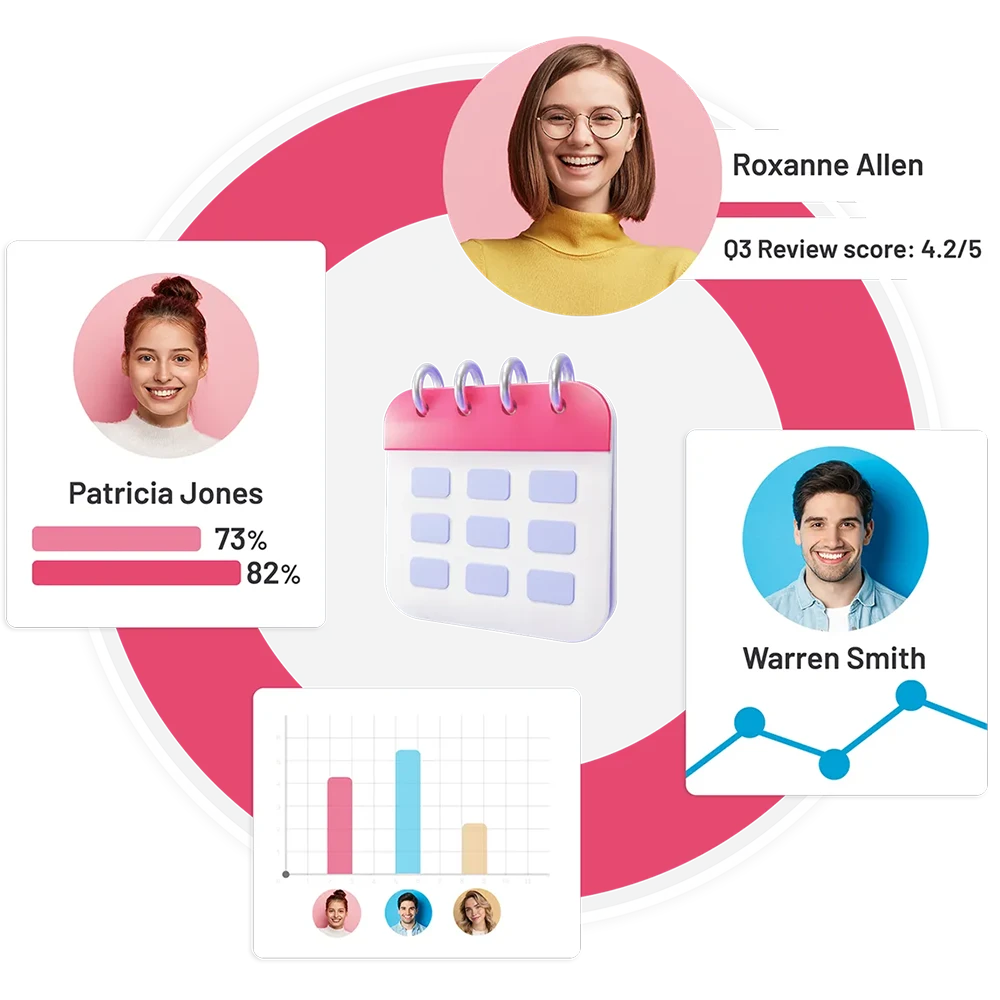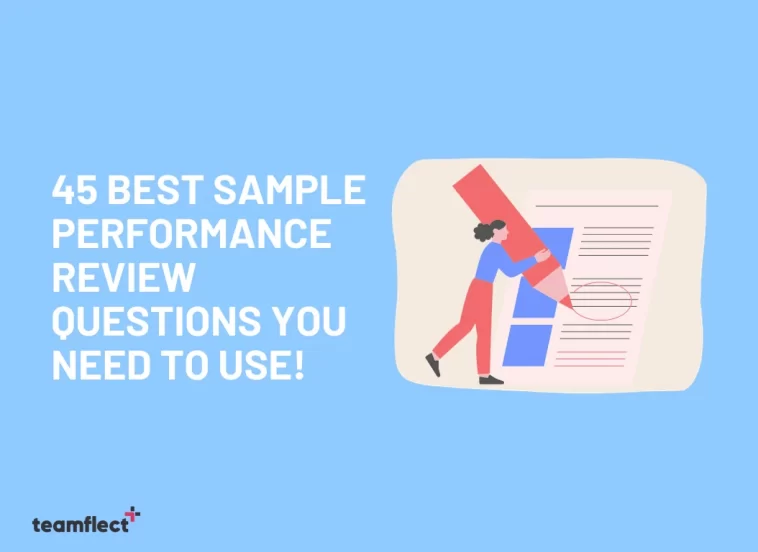You’re not sure about which performance review questions to ask? Or maybe you’re looking for some fresh performance review question examples to save you from the tedium of using the same old tired performance appraisal questions year in and year out. Whatever the case is, we have you covered.
As you scroll down, you will find some of the best sample performance review questions our team could put together.
Each performance review question listed here serves a common goal. It is the same goal that every performance appraisal secretly serves: Strengthening the bond between employee and employer.
Whether that goes through accountability in the employee’s current role, performance review questions about career development, or simply asking questions on workplace culture, these sample questions are here to help!
So without wasting any more time on this long-winded introduction: Here are 45 sample performance review questions you should definitely start asking!
Table of Contents
Ask questions the right way!
It’s not what you say, it is how you say it! We’ve all been in arguments with our significant others where this phrase came up. As frustrating as it may sound, are right! While the questions we’ve listed in this post are a great fit in any of your performance reviews, how you conduct those performance reviews can either make or break the entire process.
The outdated way of conducting reviews through cumbersome Word or Excel documents has truly given them a bad rep. As important as performance reviews are to the success of an organization, when everyone involved hates the process, they can’t be expected to yield effective results.
The best way to conduct performance appraisals is through the use of integrated performance review tools. If your organization uses Microsoft Teams on a daily basis, then Teamflect is the tool for you.
Through customizable Microsoft Teams performance review templates, Teamflect allows users to keep entire review cycles inside a single app. No going through spreadsheets upon spreadsheets of Excel files, or using a separate tool for 360-degree feedback.
Curious if Teamflect is the right performance review software for you? You can try it out for absolutely free, with no time limits, and without signing up!



